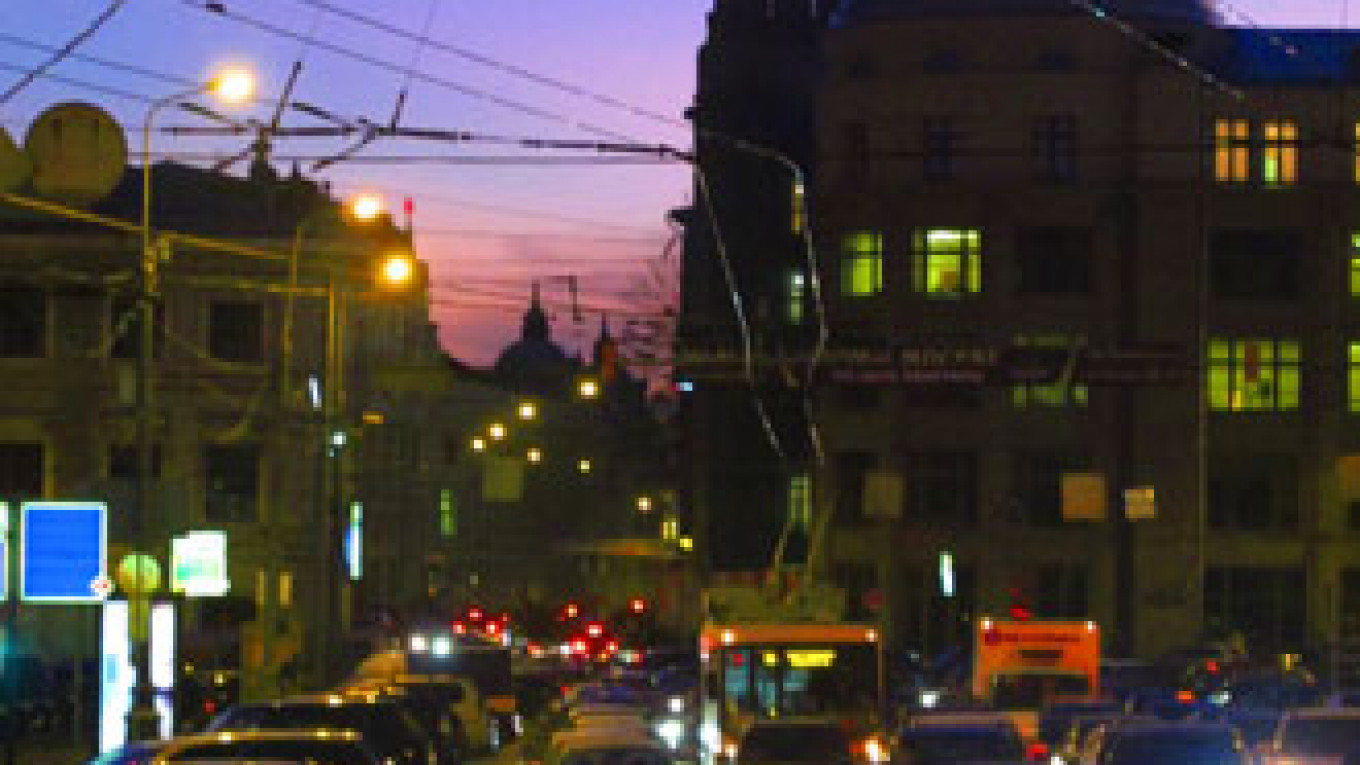New federal rules for inspecting suspected drunk drivers took effect across the country Monday, including broader reliance on alcohol breath tests and a requirement that two witnesses monitor the process.
The Health and Social Development Ministry ordered the changes to help enforce a zero-tolerance policy on drunk driving, which President Dmitry Medvedev reintroduced this summer. But drivers groups criticized the changes, saying they did not account for equipment malfunctions and still left open the possibility for abuse.
Previously, doctors would conduct a physical examination, including dexterity tests, to determine sobriety in cases where a suspect contested the results of a breath test. Now, a doctor or paramedic will only be allowed to rely on results from the Breathalyzer test.
“The role of the doctor, who would use clinical methods, is not important anymore. The breath test can be administered by any paramedic, so there are a lot of possibilities for abuse,” said Alexei Dozorov, a member of Siniye Vedyorki, or Blue Buckets, drivers group.
The group — which protests the use of flashing blue lights by senior officials to avoid traffic — has staged motor rallies to draw attention to the cause. At one in August, several members downed bottles of kefir, a lightly fermented beverage served to children, to protest the zero-tolerance rule before their drive.
Now, if a driver or police officer questions the results of an alcohol breath test, the suspect may still go to a clinic for a second test — also by breath. The new rules, introduced by an order printed Monday in the official Rossiiskaya Gazeta, would require that two witnesses be present during the police examination.
But public activists and drivers protested the measure, which they argued would be used by traffic police to demand bribes.
“Any person who had a bottle of kvas or kefir might get into trouble with alcohol,” said Sergei Kanayev, a leader of the Federation of Car Owners.
Kvas is another lightly fermented traditional Russian drink.
Kanayev cited an experiment conducted by his organization, in which former Deputy Interior Minister Vladimir Vasilyev drank a bottle of kvas in front of reporters. A breath test conducted several minutes later showed a trace of alcohol, which would have put Vasilyev in violation of the new, no-tolerance rules.
The Federation of Car Owners will closely monitor the application of the new rules to address any possible abuses in court, Kanayev added.
In 2008, the State Duma set a limit of 0.3 grams of alcohol per liter of blood for drivers. That would allow most adults to consume one standard alcoholic drink and still be within the legal limit.
Medvedev signed amendments to the law reintroducing the zero-tolerance policy in July. "They start with a shot, then another one, then two, three, and then they think they can still drive," Medvedev said at the time.
Drunk driving is one of the country's biggest problems. According to traffic police statistics, drunk drivers were responsible for 9,000 accidents in Russia in the first half of the year, killing about 700 people.
A Message from The Moscow Times:
Dear readers,
We are facing unprecedented challenges. Russia's Prosecutor General's Office has designated The Moscow Times as an "undesirable" organization, criminalizing our work and putting our staff at risk of prosecution. This follows our earlier unjust labeling as a "foreign agent."
These actions are direct attempts to silence independent journalism in Russia. The authorities claim our work "discredits the decisions of the Russian leadership." We see things differently: we strive to provide accurate, unbiased reporting on Russia.
We, the journalists of The Moscow Times, refuse to be silenced. But to continue our work, we need your help.
Your support, no matter how small, makes a world of difference. If you can, please support us monthly starting from just $2. It's quick to set up, and every contribution makes a significant impact.
By supporting The Moscow Times, you're defending open, independent journalism in the face of repression. Thank you for standing with us.
Remind me later.






